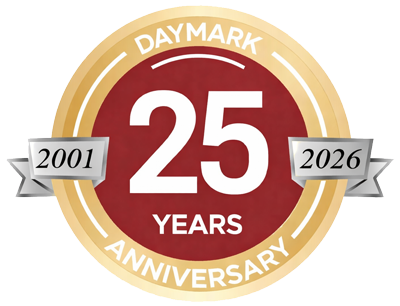Author: Joseph Correia, Principal Consultant
In early 2009 it was announced that Exchange 2010 now had "built-in" archiving. This generated a lot of interest and excitement. Based on the information from Microsoft, it would appear that your archiving needs will be addressed by Exchange 2010, so why not put your plans on hold until you can upgrade or migrate to 2010?
Some of the benefits expected to be provided by Exchange 2010 archiving are elimination of PSTs across the organization, integrated user search of both active mailbox and archive mailbox, simple archival and deletion policies from Microsoft Records Management, multi-mailbox search for e-discovery, roles-based access control, and drag & drop access to your personal archive.
At first pass, it appears that most of the basic features you need in an archiving solution have been covered in Microsoft's first attempt with 2010, and I expect that they will improve the offering going forward. However, with only these features available, Exchange 2010 is probably only a good fit for small to mid-size businesses - those primarily concerned with archiving to eliminate PSTs and enable some form of search without implementing any additional software.
A deeper look at the native Exchange 2010 archiving functionality shows some significant issues that you should think about before proceeding. With Exchange 2010 archiving, mailbox database sizes are dramatically increased due to archived data being stored in the same database as the mailbox itself and the elimination of single instance storage (SIS). Other shortcomings include:
- Outlook 2010 is required to enable archiving
- eDiscovery searches are limited to the Exchange Organization
- There is no legal hold for Public Folders
- Archive access is not extended to cache mode
- There is no stubbing of messages.
Expanding on these points a little more, storing archive data in the same mailbox database as the user's mailbox means that your Exchange Server storage is not being reduced. The elimination of SIS further increases the likelihood that database sizes will increase going forward.
In addition, moving to Outlook 2010 is no simple task, as anyone who has been through an application rollout realizes. Furthermore, eDiscovery searches are limited to the Exchange organization and cannot be performed across multiple organizations thus rendering the search incomplete and somewhat indefensible in a courtroom.
So IMHO, Exchange 2010 archiving in its current iteration will likely not fit the needs and requirements of many companies that have even moderate amounts of messaging data. Mid-size to large customers will want to archive other data types (file system, Instant Messages, SharePoint) along with e-mail and require strong eDiscovery capabilities across those realms, let alone require a reduction of storage use at the archive.
Some questions you should be asking yourself before implementing archiving:
1. Why are you going to implement archiving? Is it for storage management, eDiscovery, compliance, all of the above?
2. How long will you be required to retain data within the archive?
3. How does the archiving solution scale?
4. If you currently have a 3rd party archiving solution how will it integrate or coexist?
5. What does the proposed solution give me? (For instance, storage reduction, eDiscovery capabilities, enhanced mobility, improved backups, improved DR, etc.)



